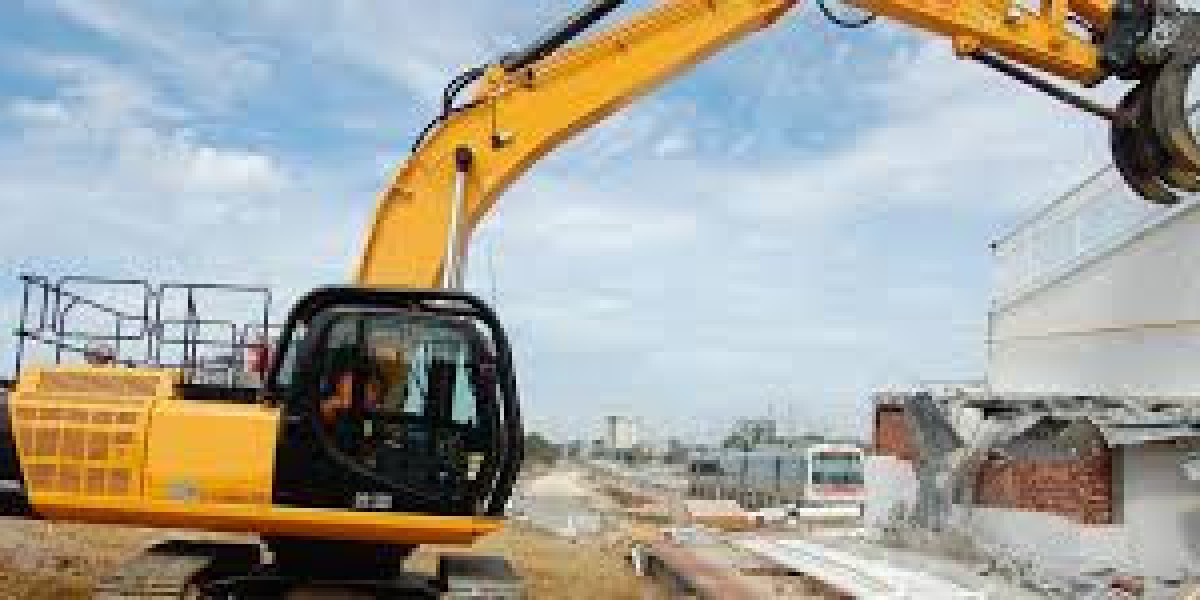Demolition services are a critical part of the construction and development industry, encompassing a wide range of activities designed to safely and efficiently dismantle buildings, structures, and other physical barriers. Whether it's a small residential teardown or the deconstruction of a large commercial facility, professional demolition services ensure the job is done properly, in compliance with safety standards, environmental regulations, and project timelines.
What Are Demolition Services?
Demolition services refer to the process of tearing down buildings and other structures. This process can include everything from partial demolition—such as removing a wall or section of a structure—to full-scale demolition of large facilities or high-rise buildings. These services are provided by trained professionals who use specialized equipment, tools, and techniques to safely dismantle structures while minimizing risks and environmental impact.
Demolition may be required for a variety of reasons:
Making way for new construction
Removing structurally unsafe buildings
Renovation or remodeling projects
Land clearing for new development
Disaster recovery and cleanup
Types of Demolition Services
There are several types of demolition services, each suited for specific scenarios:
1. Residential Demolition
This involves tearing down houses, garages, sheds, and other residential structures. Often required during renovations or when a property is being rebuilt, residential demolition must be carefully planned to protect nearby homes and infrastructure.
2. Commercial Demolition
More complex than residential demolition, commercial demolition includes the removal of office buildings, warehouses, shopping centers, and other commercial facilities. It often involves larger equipment, greater safety measures, and strict adherence to zoning laws and environmental regulations.
3. Industrial Demolition
Industrial demolition involves dismantling factories, plants, refineries, and heavy industrial buildings. These projects are highly complex and may involve hazardous materials, such as asbestos or chemical waste, requiring specialized knowledge and certification.
4. Interior Demolition
Also known as selective demolition, this type involves removing specific parts of a building—such as walls, floors, or ceilings—without affecting the overall structure. Interior demolition is common in remodeling and renovation projects.
5. Controlled Demolition
Controlled demolition uses calculated methods, such as implosion, to bring down a structure in a predetermined way. This is often used for large buildings in dense urban areas where precision is crucial.
Demolition Process
A typical demolition project follows several key steps:
Site Assessment & Planning
Experts assess the structure and develop a detailed plan, including safety measures, environmental considerations, and equipment needed.Permitting & Legal Compliance
Permits are obtained and all necessary documentation is filed with local authorities. This includes meeting regulations for noise, dust, waste disposal, and safety.Utility Disconnection
Before demolition begins, utilities like water, gas, and electricity must be safely disconnected.Hazardous Material Removal
If materials like asbestos, lead paint, or chemical waste are present, they must be removed and disposed of according to environmental guidelines.Demolition Execution
Using heavy machinery (e.g., excavators, bulldozers, wrecking balls) or controlled techniques (e.g., explosives), the structure is dismantled.Debris Removal & Site Cleanup
Debris is sorted, recycled where possible, and safely removed. The site is then prepared for its next use.
Benefits of Professional Demolition Services
Hiring a professional demolition contractor offers many advantages:
Safety: Professionals adhere to strict safety protocols, reducing risks of injury or damage.
Efficiency: Trained crews with the right tools can complete projects faster and more cost-effectively.
Regulatory Compliance: Professionals handle permits, inspections, and waste disposal according to the law.
Environmental Responsibility: Many demolition services prioritize recycling and eco-friendly disposal methods.
Customized Solutions: Each project is approached with a tailored strategy to meet client needs and site conditions.
Choosing the Right Demolition Contractor
When selecting a demolition contractor, consider the following:
Licensing and Insurance: Ensure the company is fully licensed and insured.
Experience and Expertise: Look for a proven track record with similar projects.
References and Reviews: Check client testimonials and ask for references.
Equipment and Workforce: A well-equipped team indicates the capacity to handle complex jobs.
Safety Record: Safety should be a top priority for any contractor.
Environmental and Legal Considerations
Demolition projects can have significant environmental impacts if not managed correctly. Professional contractors take steps to minimize noise, dust, and pollution, and often implement recycling programs to reduce landfill waste. Additionally, they ensure legal compliance by following local building codes and environmental regulations, helping clients avoid fines and legal issues.
Future Trends in Demolition Services
With advancements in technology, the demolition industry is evolving. Some of the trends shaping the future include:
Green Demolition: Emphasis on sustainability and waste reduction.
Automation and Robotics: Use of drones and remote-controlled equipment for safer and more efficient operations.
Advanced Recycling Techniques: Increasing reuse of building materials.
Data-Driven Planning: Use of software and 3D modeling to improve accuracy and project outcomes.
Conclusion
Demolition services are an essential part of urban development, construction, and property management. Whether clearing space for new projects, removing hazardous structures, or renovating existing buildings, professional demolition ensures the job is done safely, efficiently, and responsibly. By working with experienced demolition experts, property owners can move forward with confidence, knowing that their project is in capable hands.






